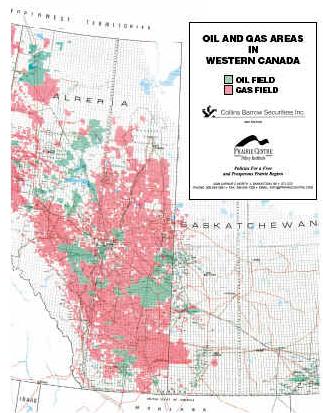
Graphic courtesy the Prairie Centre Policy Institute and presented to undermine the popular myth that the only factor in Alberta's success is an energy-based "fluke of nature" economy.
As you might have deduced from the graphic above, successful resource development involves a little more than sticking a pipe in the ground and standing back with a bucket to catch the falling toonies. Government regulation, taxation, royalty structures, labour laws, environmental policy - all influence whether or not fields are developed, or even explored.
Capital is a finite commodity - and a discriminating one. It tends to flow to jurisdictions that not only offer a good chance of returning a profit, but exhibit the willingness to leave as much of it as possible in the hands of the risk-taker.
There is no mystery as to why Prairie energy reserves seem to have been walled off at the Saskatchewan border - the much heralded Tommy Douglas chased the oil companies from their headquarters in Regina to Calgary with policies that were openly hostile to the industry.
Read more at source .
Kate McMillan is a good writer and has a blog at SmallDeadAnimals . Recommended by Mark Steyn.